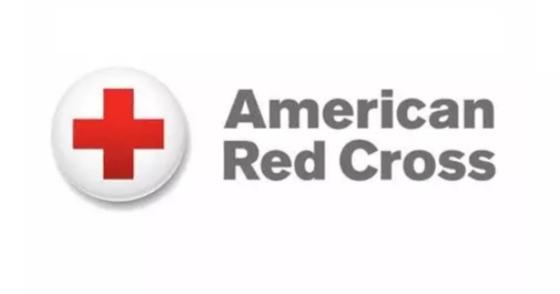Whether it’s conducting a blood drive to ward off a summer shortage at local hospitals or providing aid to civilians caught up in the turmoil of armed conflict, one of the fundamental principles of the International Red Cross is to reduce human suffering.
And Thomas Harper, senior legal advisor for the American Red Cross in international humanitarian law, told guest co-host Phyllis Maynard that the Red Cross/Red Crescent doesn’t take sides; rather, it works to protect civilians and civilian property by upholding international humanitarian law, which Harper described as “the law of armed conflict, the rules that govern warfare.”
It may sound strange that warring factions are supposed to comply with certain international rules, but thanks to an array of agreed-upon rules among nations throughout the world such as the Geneva Conventions that were established after World War II, Harper said it’s a role of the Red Cross and Red Crescent to help ensure those rules are followed.
Harper was the guest on the regular monthly “Former Active Duty, Still Boots on the Ground” segment of TownTalk Tuesday.
Harper, a North Carolina native, needed his parents to sign for him to enlist in the Army at age 17. He was in the Army ROTC at NC State, where he earned his commission as a lieutenant. The Army gave him some time to complete law school at Campbell University and he was a JAG (Army attorney) for about seven years before transitioning to the Army Reserve in 2018. During his active duty, he served in Afghanistan as a prosecutor, special victim counsel and an operational law attorney during Operation Enduring Freedom.
Harper currently holds the rank of major and is a deputy regional defense counsel. “I still wear the uniform, just part-time, nowadays,”he said.
Harper advises the Red Cross on international humanitarian law, a specific subset of policies enacted during wartime.
The evolution of International humanitarian law is the result of “repeated carnage and destruction and just lack of humanity that’s in warfare and saying ‘enough is enough,’” Harper said. Through global treaties like the Geneva Conventions, nations across the globe strive for ways to rein in the destruction that war inevitably creates, while protecting innocent civilians and civilian property.
As international humanitarian law has evolved over time, it has put in place protections and a series of rules that serve to protect the innocent in warfare.
Since February, the world has been focused on the events in Ukraine. Reports of shelling shopping areas, apartments and other civilian areas surface regularly, and it’s instances such as these that come to the attention of the International Red Cross.
The Youth Action Campaign is a Red Cross program that introduces students in the 13-23 age range to the basic tenets of international humanitarian law.
The youth advocates as they are called, form teams in their schools and then are given the task of creating and designing public awareness campaigns to educate others about the ins and outs of IHL.
Just in the past year alone, the youth action campaign has reached more than 40,000 individuals, Harper said. “That’s 40,000 individuals who (now) know more about IHL and how those protections work today,” he said. “It wasn’t the work of some lawyer in DC or some official at a school somewhere – that was the work of students in a classroom and going out and making an impact in their communities.”
Youth who participate in programs like the Youth Action Campaign are helping to support IHL in everyday, real time.
Harper said it’s grass-roots programs like the YAC, as well as stories, interviews and even radio shows that help the country comply with the Geneva Convention of 1949 – whether it’s a group of teens developing a social media campaign to share in the community or participating in a discussion about current IHL issues.
“These rules have to be respected by all sides,” he reiterated. “Every single person’s voice matters.”
“We don’t take sides, we don’t get into the mix of who’s right or wrong because the goal at the end of the day is to reduce suffering. We’re impartial, we’re neutral, because we have to be.”
CLICK PLAY!
